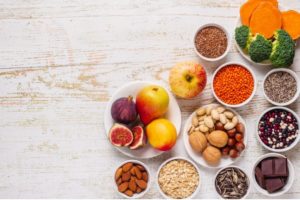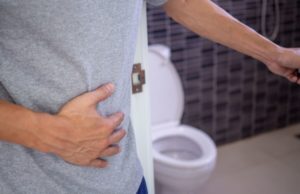The Science of ‘Ghost Poops': What's Really Going On?
There’s a lot of discussion about ghost poops. We thought it would be helpful to explain what scientists have found out so far.In the past decade, there has been a significant increase in interest around “ghost poop” – the term used for the fecal matter that is visible on toilet paper without being liquid or solid at all. In this article, we will discuss some research findings and offer tips on how to avoid these incidents from happening again in your home!
First off, it’s important to have an idea of what is actually happening. Scientists have shown that ghost poops are quite simply having insufficient water content in the stool.
More specifically, this means that the feces were semi-solid or firm at first (in other words, like your typical poop), but then became more solid as they dried up during their journey through the intestine and onto the rectum.
The ‘ghosts' remain because they do not contain enough water (which would allow them to pass easily) and they are too hard to be pushed out with normal contractions of muscles found in the colon wall.
The visible ‘puffs’ of visible fecal matter on undergarments are dry remnants of the stool that had already passed (and were on their way to exiting the body) but failed to make it all of the way.
Some of the causes include:
 Constipation
Constipation
It is more common for people who are constipated to experience “ghost poops” than those who do not report having experienced constipation.
This research was conducted using data from individuals involved in a clinical study, but there has also been anecdotal evidence of this connection found by consumers who've shared their ghost poop stories at IBS forums or on Amazon product review sections for some types of medications.
The benefits of maintaining regular bowel movement via exercise and fiber intake have been well documented – making sure you drink enough water is another key step in avoiding constipation.
Dehydration
 If you do not drink enough water throughout the day, your poop may become harder and more difficult to pass when it eventually travels into the rectum.
If you do not drink enough water throughout the day, your poop may become harder and more difficult to pass when it eventually travels into the rectum.
It is true that we get a large percentage of our daily water supply from fluids like coffee and juice (e.g., 8-12 cups of coffee per day can add up to 64 oz. of water intake), but we recommend at least 3 liters (almost 100 ounces) per day!
Medications
Some medications can contribute to a greater risk of constipation or dehydration; e.g., opioids caused 42% of people to be constipated within 12 weeks,8 resulting in 2-3 hard stools per week.
Diseases
Some diseases of the gastrointestinal tract, such as irritable bowel syndrome (IBS) and colon cancer can also cause people to have a harder time passing stool, resulting in the “ghost poops”.
 In order to avoid these “ghost pooping” incidents from happening again, we suggest incorporating a fiber-rich diet into your lifestyle. You can also talk to your doctor about medications for constipation or IBS, which may help keep the stool moving along.
In order to avoid these “ghost pooping” incidents from happening again, we suggest incorporating a fiber-rich diet into your lifestyle. You can also talk to your doctor about medications for constipation or IBS, which may help keep the stool moving along.



 Constipation
Constipation
Leave a Reply